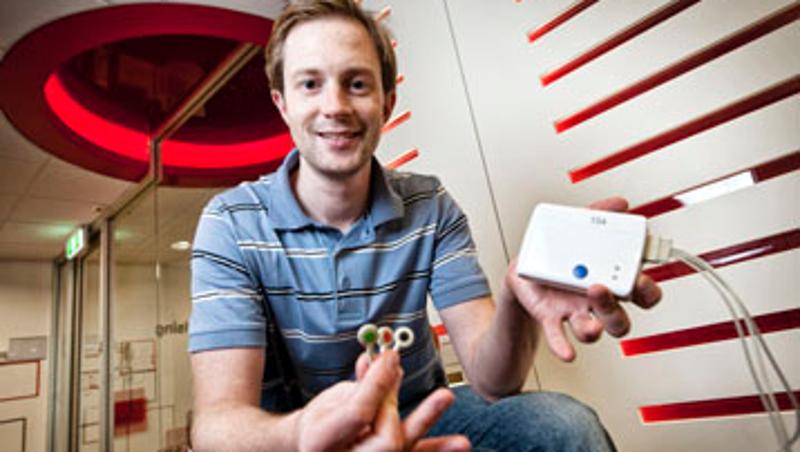
QUT economics researchers will attach heart monitors to (willing) voters in the election make-or-break seat of Ashgrove to find out just what makes voters tick as they put pen to paper to cast their vote on Saturday.
PhD researcher Jonas Fooken, from Queensland University of Technology's School of Economics and Finance, said the heart rate recordings would indicate the voters' level of physiological arousal during the pointy end of the decision-making phase of a real election.
"We are focussing on the high-profile marginal seat of Ashgrove whose voters know their vote is crucial to the outcome of the election and another less marginal seat, South Brisbane, which is held by Premier Anna Bligh, to record the voters' heart rate variability (HRV)," Mr Fooken said.
"Psychological research has found your HRV serves as a 'relevance' indicator when making decisions and we will be able to record this with a three-point, lightweight monitoring device attached to volunteer voters."
He said the research had the dual aim of using the findings from the real-world voting situation to test the validity of decision-making behaviour during economics experiments in QUT's Behavioural Economics Lab, and to shed light on the theories of voting used by political scientists and economists which could underpin electoral policy.
"We will ask the voters who agree to be hooked up to the monitor before they enter the polling booth, to fill out an on-screen questionnaire when they come out and then perform a quick economics experiment," Mr Fooken said.
"Experiments are a common, non-intrusive research tool in many areas of social science, including economics and political science but extrapolating laboratory findings to real-world decisions can be difficult."
Mr Fooken said economists were intrigued by the fact that a lot of people voted in non-compulsory voting systems when, in economic terms, the cost was quite high (people could be doing more interesting things than lining up to vote) and the pay-offs were few (people feel their vote is unlikely to have much impact on the results).
"Not everybody votes in a non-compulsory voting system so we don't really know what makes them abstain. In a system of compulsory voting such as Australia's everybody has to vote and so we can observe the 'abstainers' as well," he said.
Mr Fooken said economists used two main theories to address voting motivation. Pivotal voter theory held that voters were more engaged when the probability their vote could be the decisive one was high, as in a marginal seat such as Ashgrove.
"This would positively 'excite' people and motivate them to go voting, and this could show up in the HRV findings. We will compare voters' HRV and experimental results in marginal with non-marginal seats."
He said the second theory, expressive voter theory, posited that people voted because they felt good about participating in the democratic process.
Mr Fooken said the ultimate aim of the research was to find voting designs best suited to helping us find out what the population wanted.
"We hope this research will provide us with information about the importance of particular elements of voting decisions such as social concerns, political preferences, and desire to take part in the political process," he said.
"It may be there is no need to drag voters to the polling booths who are not particularly interested in participating in the political process. And, if the pivotal voter theory is correct, we won't change results by abolishing compulsory voting, as people will start coming again if they realise their vote might count and they care about the outcome."
Mr Fooken's research is conducted with Professor Benno Torgler and Dr Markus Schaffner from QUT's School of Economics and Finance.
Mr Fooken's research will be conducted at the Gap State School polling booth in Ashgrove and at the Brisbane State High School in South Brisbane.
**High res photo of Mr Fooken with heart rate monitor available for media use.
Media contact: Niki Widdowson, 07 3138 1841 or n.widdowson@qut.edu.au


